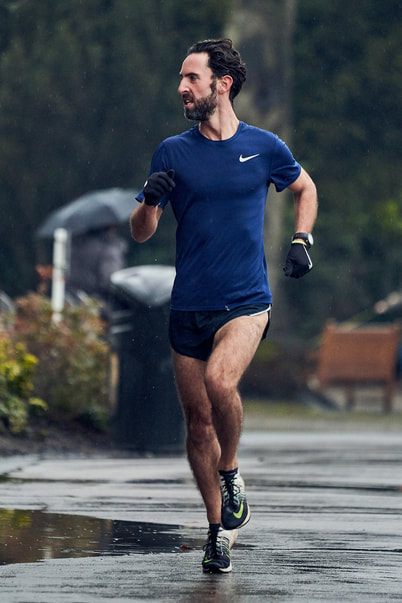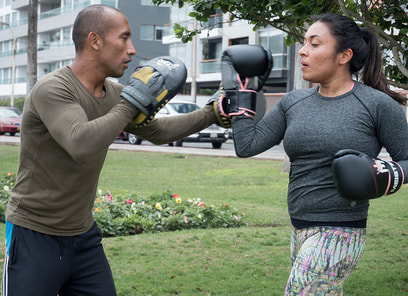 We’re all aware of the robust research on the benefits of physical activity. But what you may not be aware of is that the motivation behind the activity can determine how beneficial the actual doing of it is for your well-being. Studies of older adults have shown, for example, that subjective well-being actually goes down when the purpose of engaging in an activity is a way to simply spend time as opposed to a way for meeting people (Everard et al 2000). Why might this be the case? Let’s look a little deeper at what motivates voluntary behavior. According to the Dualistic Model of Passion (Vallerand et al 2007), there are two types of passion associated with doing preferred activities: obsessive passion and harmonious passion. Obsessive passion has to do with feelings of internal or external pressure to do an activity due to it being linked to one’s self-esteem, social acceptance, or other influences on one’s sense of self. Harmonious passion has to do with a feeling of willingness and choice in engaging in an activity, usually because the individual decides it’s important to them without it impacting their identity. Harmonious passion has a sense of volition to it, whereas obsessive passion is associated with an uncontrollable urge and resulting conflict between the activity and other life priorities. In a study of physically active older adults in Egypt (Salama-Younes and Hashim 2018), the researchers found that individuals who demonstrated harmonious passion as well as a subjective sense of vitality, had higher scores on life satisfaction. Obsessive passion, on the other hand, led to a significant decrease in life satisfaction regardless of personal feelings of vitality. So perhaps, paradoxically, engaging in activities designed to maintain or enhance one’s self-esteem or personal sense of self may not, in fact, be the best form of self-care. ***  Fight for Peace academies in England and Brazil “combine boxing and martial arts with education and personal development to realize the potential of young people in communities affected by crime, violence and social exclusion.” Promoting self-respect and self-control, discipline, and feelings of belonging, Fight for Peace endorses a holistic change model that includes physical training, employability, social support and youth leadership: “championship” inside and outside the boxing ring. Check it out: http://fightforpeace.net/about-us/our-approach/ Comments are closed.
|
AuthorK.Gustin, Ph.D. Archives
September 2021
Categories |
Photos from dvanzuijlekom, kevin dooley, Rawpixel Ltd, Jaykhuang, Marco Verch, IQRemix, Pest15, jenni from the block, www.cemillerphotography.com, Pierre PRESTAT, UNMEER, shixart1985 (CC BY 2.0), Benedikt Lang, biernackip, Ryan Dickey, Gamma Man, sgamble48, quinet, Günter Hentschel, tedeytan, nicolas.boullosa, Andreas Brandell Photography, Feed My Starving Children (FMSC), Dick Thompson Sandian, steve p2008, Ministère du Travail, de l'Emploi et de la santé, varmarohit, keepitsurreal, marcoverch, USEmbassyPhnomPenh, seattleanimal, hillels, sustainablejill, audi_insperation, benagain_photos, markus119, u07ch, Ale Art, pockethifi, milomingo, SchuminWeb, Vladimir-Morozov, Pablo F. J., Aardwolf6886, arundel and brighton, barnimages.com, krossbow, travelourplanet.com, Pictures by Ann, symphony of love, Shadowgate, Becky Matsubara, Martin Hesketh, David Paul Ohmer, maf04, KellyMercer, Sue90ca MORE OFF THAN ON, Günter Hentschel, Montclair Film, Carol (vanhookc), wuestenigel, paologmb, quinn.anya, marcoverch, Sarah Skiold-Hanlin, Jon_Callow_Images, Yahoo Inc, gregarch2, USFWS Mountain Prairie, CityofStPete, Theo Crazzolara, cafecredit, OIST (Okinawa Institute of Science and Technology), poptech, Free For Commercial Use (FFC), Phil Roeder, PragmaticFix, Phuketian.S, fabola, Chilanga Cement, BiblioArchives / LibraryArchives, GerryT, San José Public Library, EU Civil Protection and Humanitarian Aid Operation, COD Newsroom, {Guerrilla Futures | Jason Tester}, snkoigi, Tony Webster, focusonmore.com, fred_fiii, francisco_osorio, JovenesPosLAC, shixart1985, dsearls, 4nitsirk, IISG, AFL-CIO Field, Free Public Domain Illustrations by rawpixel, SortedForYa, Keith Allison, amira_a, Anne Worner, verchmarco, Toolstotal, Tuerkis Doerky, Thomas Naas Photography, Stiller Beobachter, josve05a_at_Wikimedia, Kenneth@Vetter, paologmb, markus spiske, chrisjtse, byzantiumbooks

 RSS Feed
RSS Feed